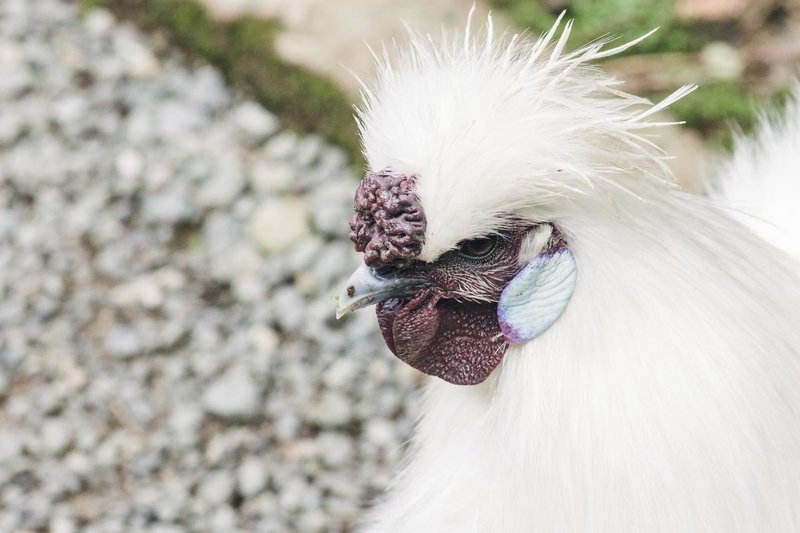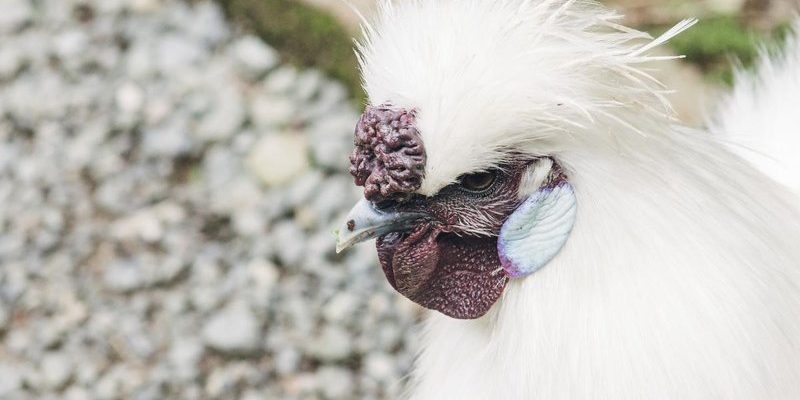
Silkies are often recognized by their distinct fluffy feathers that feel more like fur than traditional chicken feathers. Their unique qualities don’t stop at their looks, though. There’s a lot more to learn about these lovable chickens, including their history, personality traits, and some surprising behaviors. So, grab a cup of coffee, and let’s explore what makes the Silkie so intriguing!
1. A Unique Feather Structure
Silkies are famous for their soft, feather-like coats. But what makes their feathers so unique? Unlike regular chicken feathers, Silkie feathers lack the barbs that usually hold the feather structure together. Instead, they have a fluffy, downy texture that’s almost like having a warm blanket wrapped around them. This unique feathering not only gives them their adorable look but also keeps them cozy.
Here’s the thing: those fluffy feathers mean they don’t do as well in wet conditions. If you’re considering adding Silkies to your flock, it’s essential to provide them with a dry shelter. Without it, they can easily get cold and uncomfortable. So, ensure their coop is well-ventilated and protected from rain or snow.
2. A Rich History
Silkies have a fascinating backstory that dates back to ancient civilizations. While their exact origins are somewhat murky, many believe they originated in China and were later introduced to Europe during trade. The ancient Romans were even known to keep them, which shows just how long these birds have been admired.
Interestingly, Silkies have often been associated with royal families and nobility. In fact, they were once considered a delicacy among high society. This long history not only adds to their charm but also makes them a unique breed with a personality shaped by their storied past.
3. Friendly and Sociable Personalities
If there’s one thing you can count on with Silkies, it’s that they have some of the friendliest personalities around. Their gentle nature makes them perfect pets, especially for families with kids. Silkies are naturally curious and love to be around people. There’s nothing quite like having a Silkie follow you around the yard, curiously pecking at your shoelaces.
You might be wondering how they interact with other chickens. Silkies are often submissive and enjoy a peaceful coexistence. However, this can make them vulnerable to bullying from more dominant breeds. If you plan to mix Silkies with other chickens, keep an eye on their interactions to ensure harmony in your flock.
4. The Broody Hen of the Chicken World
When it comes to motherhood, Silkies take the cake. They are notorious for being *broody*, meaning they love to sit on eggs and hatch them. This trait makes them fantastic mothers when raising chicks, as they are very attentive and nurturing. If you’ve got a Silkie hen, she might just take charge of the egg incubation process herself.
What’s neat about their broody behavior is that they may even “adopt” other eggs, regardless of the species. Some Silkies have been known to successfully hatch ducks, quail, or even guinea fowl. It’s a remarkable display of their nurturing instincts, showcasing how adaptable and caring these little birds can be.
5. A Variety of Colors
When people think of chickens, they often picture standard colors like white or brown. But that’s not the case with Silkies! They come in an array of beautiful colors, including black, blue, splash, gray, and even lavender. Each color has its own unique charm, making it easy for any chicken enthusiast to find a Silkie that captures their heart.
The diversity of colors is a result of years of selective breeding. It’s fascinating to see how these beautiful birds’ appearances can vary significantly, allowing for unique combinations that add to their allure as pets.
6. Silkies and Their Genetics
Silkies are not just charming but also genetically unique. One of their most interesting features is their five toes, rather than the usual four that most chickens have. This extra toe is a result of a genetic mutation, making them stand out even more. You might find yourself admiring these one-of-a-kind toes every time you see a Silkie strutting around.
This genetic peculiarity doesn’t just stop at toes. Silkies also have black skin and bones, which is quite unusual for birds. While it may sound strange, these traits add to their mystical and charming nature. If you’re considering raising Silkies, their unique genetics are a fun fact to share with friends and family.
7. Low Maintenance Chickens
If you’re new to raising chickens, Silkies can be a great choice. They’re relatively low-maintenance, making them perfect for beginners. Here’s why: they thrive in small spaces and don’t require extensive exercise like some other breeds. As long as they have a safe, cozy space to roam and a balanced diet, they’ll flourish.
Moreover, Silkies are not heavy eaters. You can easily feed them kitchen scraps, grains, and commercially available poultry feed. Just keep an eye on their diet to ensure they get the nutrients they need. With a little love and care, your Silkie flock will be happy and healthy.
8. Their Unique Vocalizations
When it comes to sounds, Silkies have their own way of communicating. You might notice that they don’t cluck like typical chickens; instead, they produce a soft, sweet sound. Their gentle chirps can be quite soothing to hear—almost like they’re softly chatting away with each other.
These vocalizations are a big part of their personality. They use different sounds to express excitement, warning, or just to say hello. If you enjoy the sounds of nature, having Silkies around can be a delightful auditory experience.
9. Silkies as Therapy Animals
Believe it or not, Silkies can even serve as therapy animals! Their gentle and calm demeanor makes them perfect companions for people of all ages. Many people find comfort in spending time with these fluffy birds, especially those who may feel lonely or anxious.
Several therapy programs utilize chickens, including Silkies, for their soothing presence. Their endearing personalities can help lift spirits, and the joy of petting their soft feathers can be very therapeutic. It’s an excellent reminder of how animals can bring happiness and comfort into our lives.
10. Perfect for Small Spaces
If you live in a small space or have a limited yard, Silkies might just be your ideal chicken. They don’t need as much room as some of the larger breeds, making them suitable for urban or suburban living. You can easily keep a small flock in a limited area, as long as they have a safe coop and space to roam.
Plus, their docile nature means they won’t disturb your neighbors. With a little planning, you can enjoy the benefits of having chickens without needing a sprawling farm. Who doesn’t want fresh eggs and the joy of watching these fluffy friends play in their yard?
As we wrap up our exploration of the Silkie, it’s clear that these charming birds are truly remarkable. With their unique feathers, friendly personalities, and rich history, they’ve captured the hearts of many. Whether you’re considering adding Silkies to your flock or simply want to appreciate their beauty, there’s no denying that these delightful chickens have a special place in the world of poultry. So, go ahead and spread the word about these fluffy wonders!

